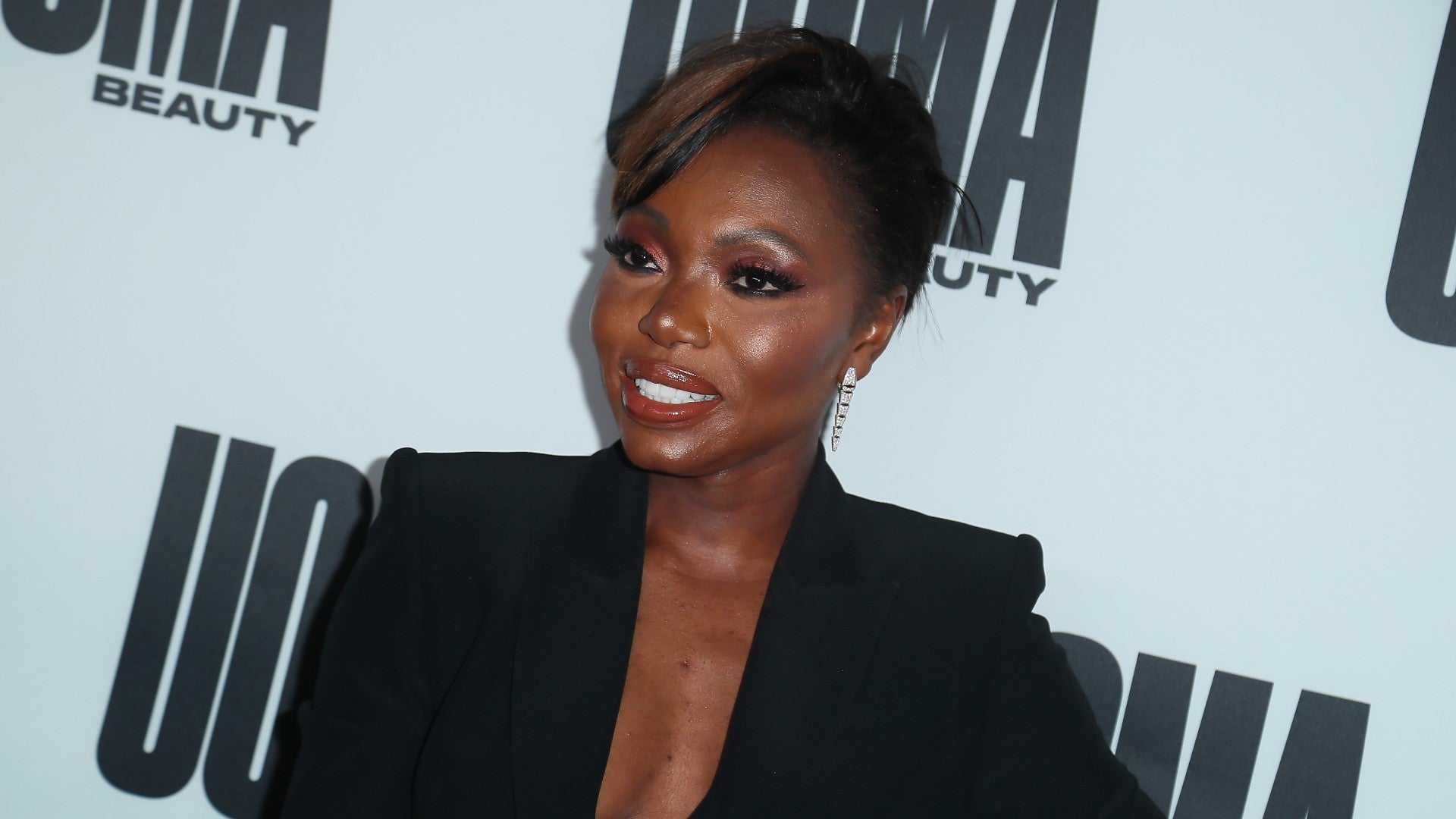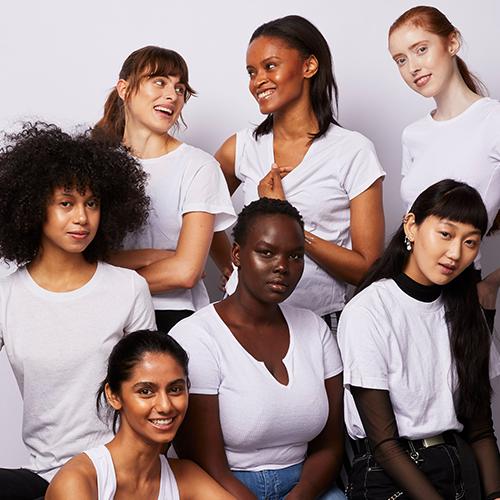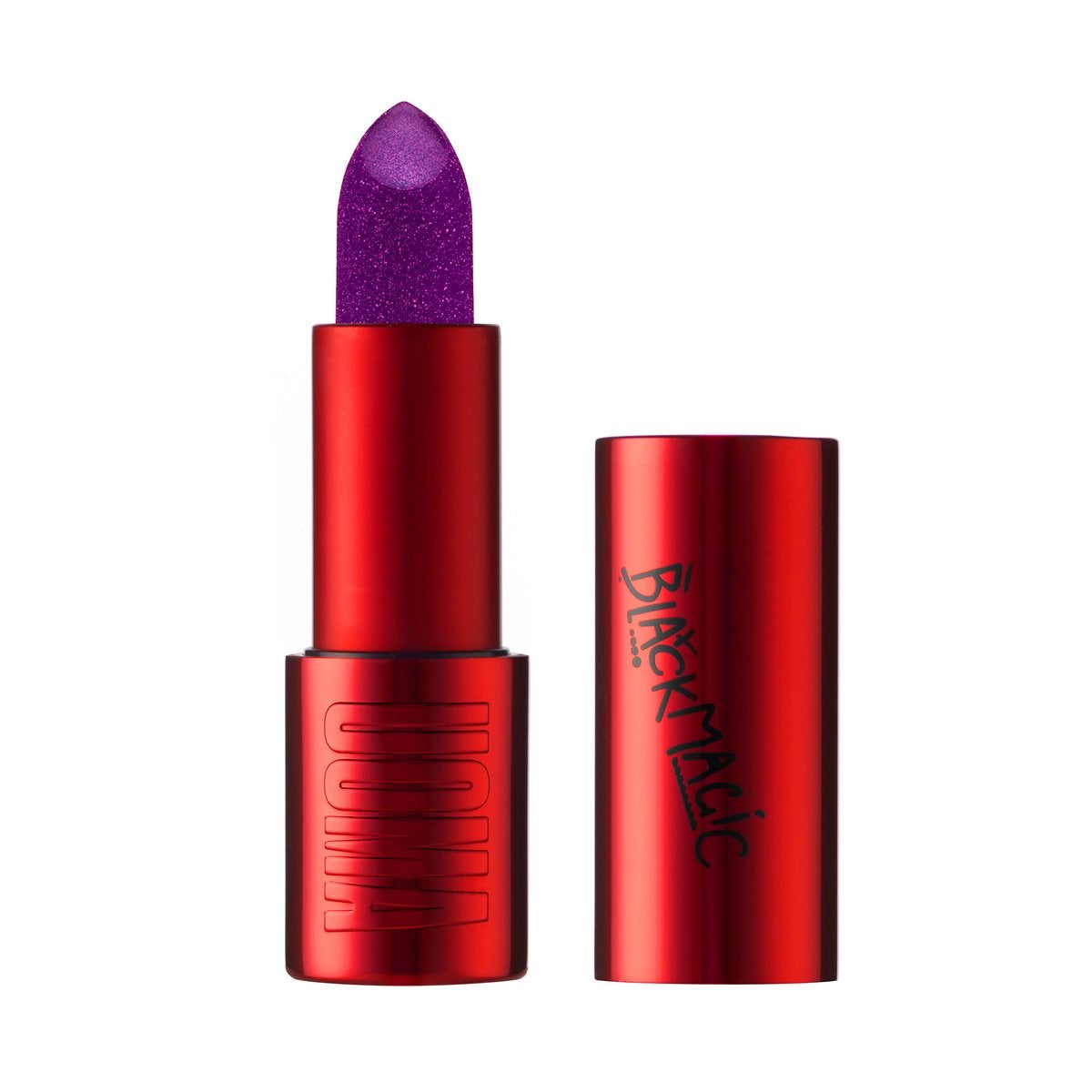
Sharon Chuter is no novice to this beauty boss thing. As head of operations at Benefit Cosmetics for four years, in addition to time managing at L’Oréal and Revlon, she’s learned quite a few things about this business. So when she offers you any kind of beauty advice, you listen. Now, with her own prestige brand, UOMA Beauty (pronounced uh-mah), she’s making waves in the color cosmetics world yet again.
Launching in April with 108 SKUs, UOMA is a large undertaking. But it’s not a challenge she isn’t up for. When she first started 14 months ago, she originally had 185 original products (she had developed more than 200 formulas). After enough investor and product meetings, she scaled it back by the time the company finally went to market, joking that you couldn’t “fit 185 products into a gondola.” Fortunately we have the remainder of those formulations to look forward to later in the year.
And Chuter has crafted the brand as an Afropolitan beauty brand that welcomes everyone to the party—by us, for all. Looking at the current campaign on the site you get the sense that it’s truly a destination for everyone. It’s a smart and powerful position to take out the gate as we watch other brands struggle to adjust in an ever-changing beauty climate. But when you’ve worked with the best, and held post at LVMH in the way that she has, you know how to position yourself.
Still, launching anything as a Black woman at the helm comes with its challenges. And since UOMA launched in April, it’s been full steam ahead for the beauty mogul—taking her new brand everywhere, from Ulta and Selfridges as retail partners, to the BET Experience, shooting the brand’s summer campaign, to Beauty Carnival at Essence Festival and onto BeautyCon LA this coming weekend.
ESSENCE got a moment to pick Chuter’s brain about UOMA and to talk about Black women in the beauty industry. She candidly offered her insight into where things are wrong, and offered solutions that will hopefully move the needle in the right direction.

ESSENCE: Did you find that there were still lots of challenges starting your brand even though you’re a veteran in this game?
Sharon Chuter: Of course. When you’re working for a company, you’re working in a specific field in that company. When you’re working on a brand, you do everything. So you’re quality control when you’ve never had been a part developer before. Being at the heart of product development was new for me. You’re also doing the supply team part of it, which is the packaging, working on control, release times, project timelines. You’re doing everything.
ESSENCE: And then there’s the money part.
SC: When it’s your money you have to be very conscious of cash and cash flow. And then, you’ve got to convince other people to give you money, and not just money in my case, a lot of money. Meanwhile, you’ve never sold a product before. So you’re telling people, give me all this money for a brand that is untested, with products that nobody’s actually tested. If you fail, you fail on a larger scale. So that was a challenge. It takes some people two, three years to raise even $500,000 to start a business.
ESSENCE: Is it more challenging for women to get their businesses funded?
SC: Yes, and specifically for women of color it’s way more challenging.
ESSENCE: Let’s talk about why that is.
SC: There are a few reasons. First thing, there aren’t enough Black women in the beauty industry to start with. Most of the Black-owned brands today were not started by women in beauty. It takes a lot longer to build when you’re not from that industry. It’s not an easy sell but it’s an easier sell when you understand the industry and you speak the industry language. It’s easier to go to Ulta and present to retailers and know exactly what they want to see and what to say. There’s a knowledge gap.
ESSENCE: Plus a lack of representation?
SC: Yes, you go to these companies and you see one or two token Black women there. When you’re a female pitching about beauty you’re pitching to men who’ve never worn lipstick in their lives. So they don’t have this emotional connection that they will have when a boy is pitching to them about technology that they use and understand. It’s a numbers thing but in the early stages you have nothing. You are selling a dream to somebody. So most of those decisions are made based on rapport. They’re based on someone having a connection with you to be crazy enough to give you their cash not knowing if you will make them money or not.
ESSENCE: So what’s the resolution here?
SC: The ecosystem around that really holds everyone back. So I think part of the solution is us making a conscious effort to have more women in those rooms, and also to have more people of color in those rooms. If I’m speaking to a Black woman, she’s going to understand what I’m telling her about lipstick shades but if I’m speaking to a While male it’s like talking to a brick wall. Sometimes I even struggle, but when you come from a corporate background you know how to speak to the numbers. I’m going to focus on the facts, but it takes knowing those facts to do that.
ESSENCE: So folks wanting to get into this business especially need to have their numbers tight?
SC: And they need to understand business. As a community the education needs to be there about the investment ecosystem. A lot of us don’t come from wealthy families, sometimes not even well-educated families. So you’re already trying to play a game that you don’t understand. A lot of people might have a great idea but what do they know about data and where to get that data from? It’s not their fault, they just didn’t have access to it. I learned how to walk into a board room full of White men and come out with the money I needed for my brand. So people like myself have to pay it forward, educating women and showing them how to create a business, how to create a presentation, how to craft a 5-year plan, how to make your supply chain efficient. The passion alone and the great idea is only the tip of the iceberg.
ESSENCE: Do you feel like organizations like 25 Black Women in Beauty will help or is it such a small piece of it that we still just need much more?
SC: We need more but I think it’s definitely going to help. What they’re doing is bringing all of us together for the first time. We’re so scattered as Black women in the beauty industry. I remember walking into that room and it was so powerful because you then realize the Black power that is out there. You really see how we are building up and sustaining and supporting these brands. That’s what happens when you’re always outnumbered and feel like you need to keep proving yourself. But 25BWB is creating an ecosystem where we’re supporting and mentoring women who didn’t have the access that we had. And we’re empowering and hiring Black women and cultivating their talent.

ESSENCE: What do you want the legacy to be for UOMA beauty?
SC: I want to make people feel so good about themselves as a result of seeing the product, seeing our campaigns, coming around us. Part of what I want as my legacy is self-love. Beauty is about uplifting people, making people love themselves and realize they didn’t need permission to be uplifted. I hope in the industry we’re part of the change where we care about people beyond just selling them products. I want to make people think about themselves and come out on the other end realizing how great they are. And that’s really what we put into everything we do.
